Like litter boxes, hairballs are just a fact of life should you have a cat in your home. We know that cats routinely groom themselves to purrfection which causes them to ingest tiny little fibers of hair. And we certainly aren’t the biggest fans of finding them. Usually by stepping on them on the way to the bathroom in the middle of the night. It’s important to know that they develop as a result of your cat’s healthy and fastidious grooming routine.
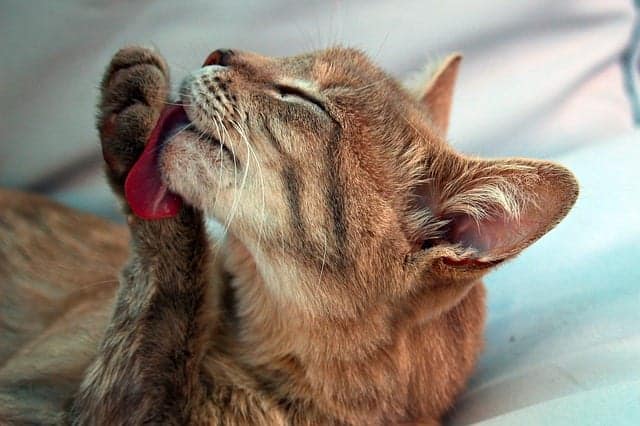
Why Exactly Do Cats Get Hairballs?
Hairballs occur because when your cat grooms themselves, tiny little hooks on their tongue collect loose hair. Obviously then your cat swallows these little strands which will eventually create a hairball–medically known as a trichobezoar. For long-haired cats, they are more susceptible to these common cat conditions naturally because of all that long and glorious fur that they have. If you happen to have a long-haired cat, it’s imperative to their health and well-being that you make grooming a priority in your lives together. They need the extra help, not the extra hairballs.
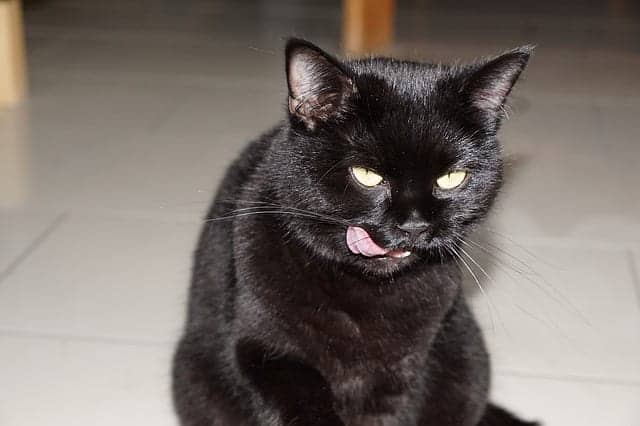
Are Hairballs “Safe” For My Cat?
While they are purrfectly natural, if your cat is suddenly grooming excessively, this can lead to an influx in hairballs. Grooming excessively can often be a sign of stress in your cat–as grooming can serve as a self-calming technique your cat does when they are anxious. If this should occur, the hairballs can sometimes cause blockage of the digestive system, especially at the exit of the stomach.
Normally your cat will expel their hairball naturally, and as it passes through their narrow esophagus, this will cause the hairball to look thin and tube-like rather than round. Gag.
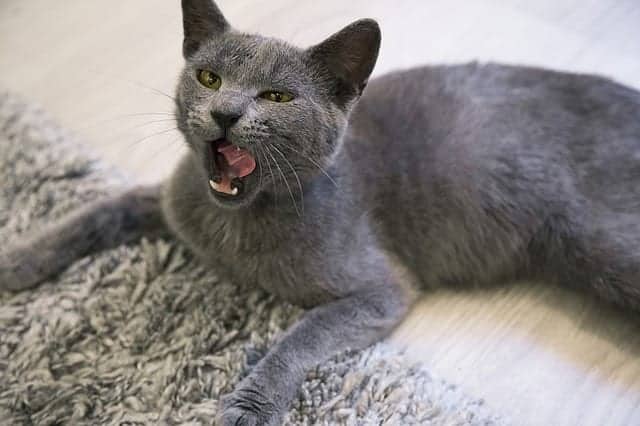
Why Don’t Kittens Get Hairballs?
Have you ever noticed that your kitten doesn’t get hairballs? This is quite normal, actually. It isn’t until cats get older they become more adept groomers and therefore more proficient at removing fur from their coats with their tongues, which means more for you to clean up.
HAIRBALL FACT: Hairballs are more common in the spring as your cat begins to shed their winter coat. Be ready to spring clean those hairballs, humans!
Can Big Cats Cough Up Hairballs?
YES. And the bigger the cat, the bigger the hairball…
What Should You Do If You Suspect Your Cat Has Blockage From A Hairball?
Cats are typically able to pass hairballs on their own, but should they be suffering from intestinal blockage from excess hair in their stomach, you will know something is amiss due to the following signs:
- Ongoing vomiting, gagging, retching, or hacking without producing a hairball
- Lack of appetite
- Lethargy
- Constipation
- Diarrhea
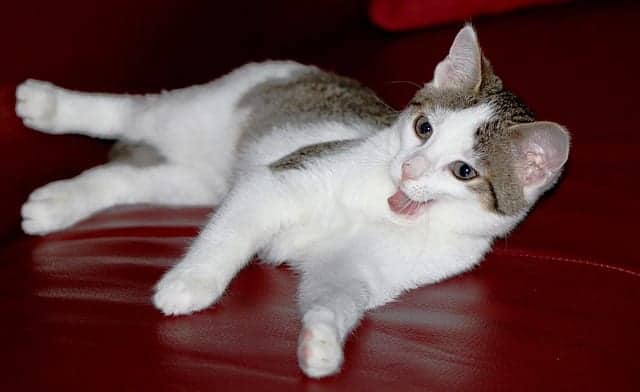
Can I Prevent My Cat From Getting Hairballs?
Hairballs are just a fact of life for your cat. And while you can reduce their chances of getting them, you cannot prevent them entirely. Here are a few things you can do to help reduce hairballs in your cat:
- Groom kitty regularly to help remove excess fur.
- Start your cat on specialized “hairball formula” food. Most of these diets feature a high volume of fiber and work on the assumption that the fiber helps keeps the gastrointestinal tract moving normally.
- You can start your cat on a mild dose of hairball laxative or product. This will help them to pass the hairballs easier through their digestive tract. Most of these are petroleum based and work by trying to lubricate the hairball, making it more likely to be passed normally through the intestinal tract. Remember, it’s important to discuss this hairball intervention tip first with your veterinarian.
- Try and divert your cat from excessive grooming should you think this is the hairball culprit. Some ways you can do this are through: routine interaction, engaged play, or offering them new and exciting toys that will captivate their attention and discourage excessive grooming behavior.
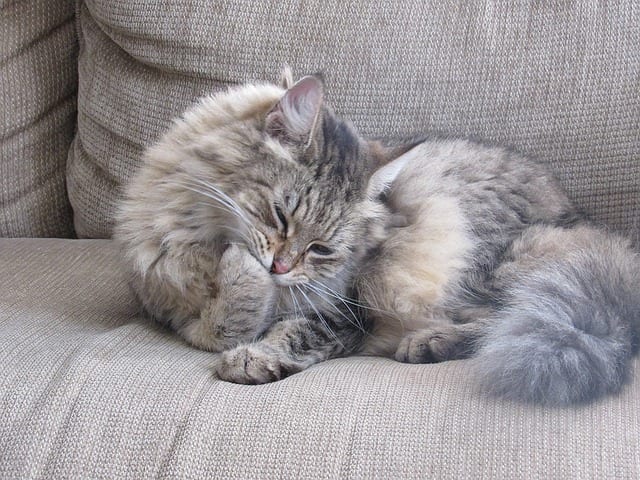
Can My Cat’s Diet Affect Their Hairball Frequency?
Although hairballs are directly related to grooming and hairs shed from your cat, cat experts have come to believe that a grain-free diet may be more appropriate for cats that vomit frequently.
According to Dr. Jane Brunt, a feline veterinarian and executive director of the CATalyst Council:
“The bottom line about hairballs is they are not normal. The cat has developed a digestive tract that can handle normal amounts of fur without a problem. Even long-haired cats should not develop more than one or two hairballs a year.”
WEIRD HAIRBALL FACT: In 2012, a British cat by the name of Gemma underwent surgery for a suspected “tumor” that was the size of two cricket balls. As it turns out, it was actually a 5″ hairball weighing 7.5 ounces! Yowza.
How Often is Considered Too Often For My Cat To Have Hairballs?
While we say that hairballs are common territory for cats, they should not be something that happens on a routine basis in your cat’s life. Healthy hairballs are few and far between, or sporadic so to speak. If hairballs are occurring more regularly, then it could mean that your cat has an underlying health concern which requires medical attention.
If your cat is vomiting frequently with or without hair in their vomit, this could be a sign of inflammatory bowel disease or even intestinal lymphoma (a type of cancer.)
WEIRD HAIRBALL FACT: Animal hairballs were once thought to cure epilepsy, the plague, and poisoning; during the Middle Ages, hairballs were even set in gold. (Thankfully we know better now– cat hairball trinkets for me, thanks!)
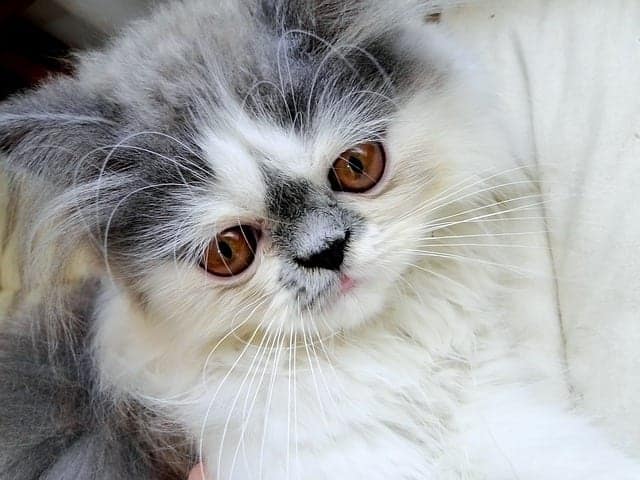
Some cats will throw up hairballs once a week, once a year, or maybe even never! Hairballs are cat territory, but their frequency greatly depends on each individual cat. Maine Coons and Persians are most prone to hairballs, so should you have one of these lovely cats in your life, be sure to do them a solid by helping them with their beauty regimen.
REMEMBER: ADOPT, DON’T SHOP; FOSTERING SAVES LIVES & SPAY AND NEUTER!
Related Story: Autumn’s Purrfect Fruit and Year Round Healthy Cat Snack ~ Natural Pumpkin Puree!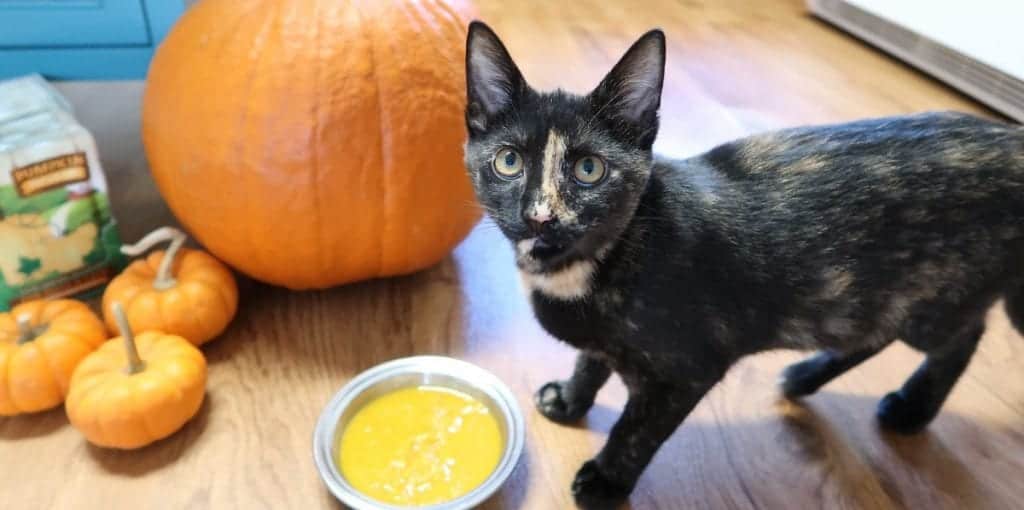



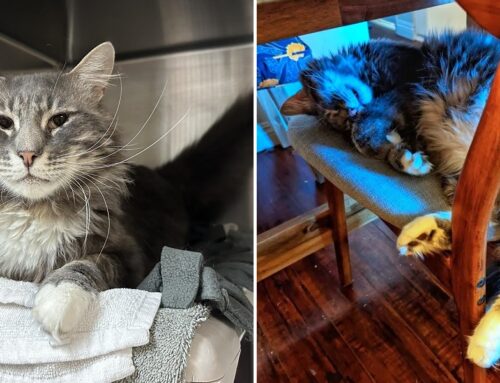
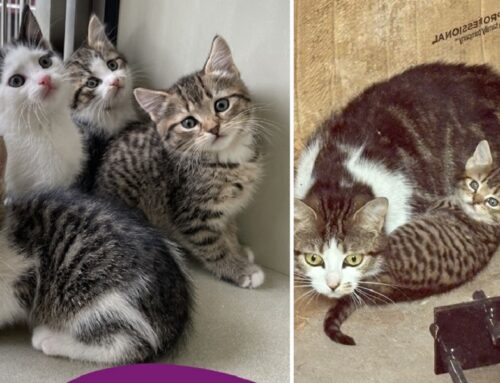
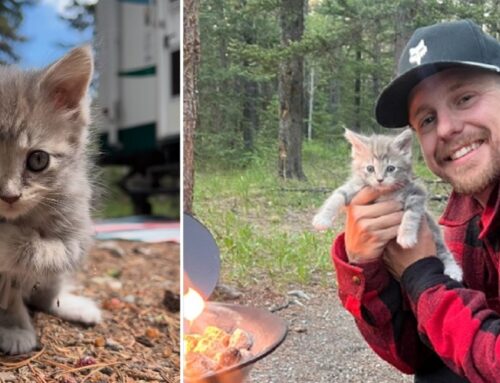

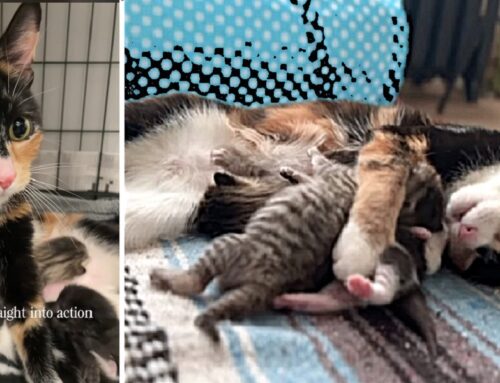

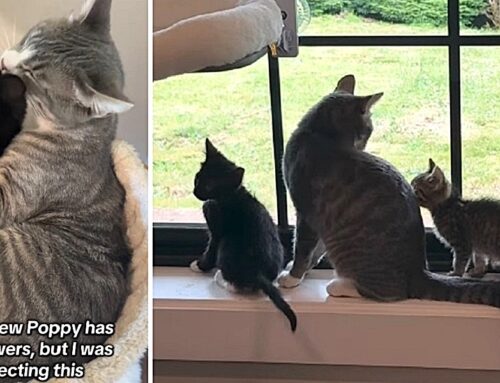
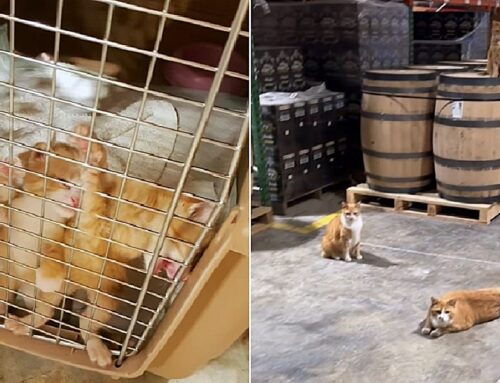
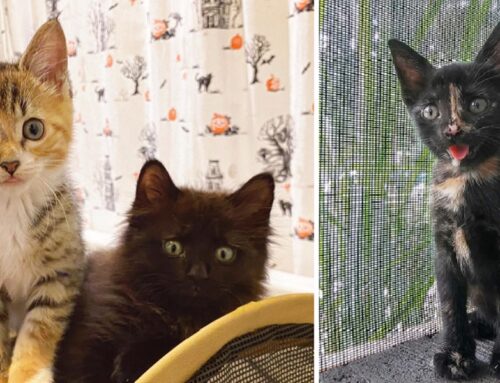

Excellent article! I wish I’d had access to it 30 years ago when I adopted my 1st cat! I knew nothing about cats and when he started throwing up a hairball in the middle of the night, he made loud noises & scared me to death! I didn’t know how to help him! We made it through the event together but I was so frightened! Lolol!
Thank you so much for your dedication and love for cats.